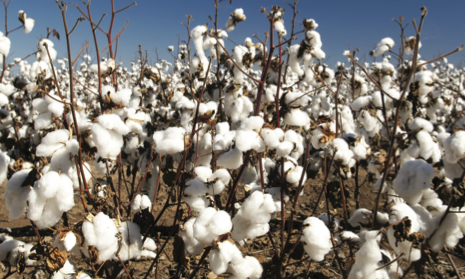New Technologies, New Problems but Essential

Few new technologies have generated the level of anxiety that has greeted genetic modification.
So great has been the concern that, in Europe, legislation limiting the use of the seeds produced by genetic modification has become so stringent as to frustrate its widespread use.
The articles in this edition of World Agriculture provide an opportunity to explore some of the causes of alarm. Anxiety about the social consequences of using genetically modified seed has taken three main forms.
First, the commercial production of genetically modified seeds is dominated by large multi-national companies.
This is an inescapable feature of a technology that involves very large- scale investment in specialist skills and equipment.
Institutions need to be capable of covering such costs by sales of patented products in global markets if the risk involved in research and development are to be recouped. Regulatory control of such organisations is beyond the control of individual nation states and the price at which seed is sold is likely to be substantially higher than the variable costs of its production.
Second, genetically modified crops that penetrate traditional markets that have used self-saved or locally produced seed are likely to create a dependency of on the continued supply of commercially produced seed.
Full benefit from using GM seed requires the purchase of appropriate pesticides and fertilisers. For small farmers, in particular, this involves a substantial cash outlay.
Given the uncertainties of weather, disease and markets this may leave families in an exposed situation. This situation arises not because traditional sources of seed are no longer possible but because they are, by comparison with the new technology, unprofitable.
In the move from purely subsistence farming to market oriented production the level of risk from adverse price movements for inputs and for outputs increases. This is not just a feature of genetically modified seed.
The justification is that overall the family benefits from the more intensive use of its limited land and labour. A third concern is that research and development will not be directed towards plant and animal species of main concern to developing country farmers.
For companies higher profits emerge by concentrating on the major crops grown in rich countries and traded internationally. The issue here is not about technology but about the functioning of the economic system as a whole.
Production for profit can result in many differing types of market failure, for example by ignoring the external costs of development that fall on third parties or the social consequences of change.
This is the basis for government intervention in a variety of areas where public benefits are not being reflected in private practice. The development of crops that are not commercially attractive by using genetic technology must depend on public investment.
The issue here is less the behaviour of the commercial sector than the failure of governments and international agencies to fund the research related to non-commercial products.
Concern is not only about the social consequences of applying genetic modification. It is feared that the gains will prove short run as resistant species of pest and weed develop. Such concerns cannot only apply to new varieties produced by genetic modification.
They apply to all new varieties and methods of crop protection. They emphasise the continued need to explore ways in which crops that are of particular importance to humanity can be protected.
The logical response is not to abandon genetic technology but to develop it in ways that open up new opportunities. Agricultural activity exists to give advantage to plants and animals that are important to human beings as sources of food, clothing and raw materials.
They necessarily change the prevailing ecology by disadvantaging competitive species whether plants, insects or animals.
This is not a feature of GM alone but of all advances that focus on the production of useful farm output. However, it is important to recognise that interventions in an ecological system that is broadly self-sustaining may initiate unforeseen changes that disadvantage humanity. These may affect farming directly, for example by removing established predators on disease carrying insects.
They may also have widespread impacts beyond farming for example from water supplies to the appearance of the landscape. These concerns rightly suggest the need for increased vigilance as the rate of technical change accelerates. They apply to all forms of development, not just GM.
There is a concern about unintended impacts. This is understandable and the level of anxiety may well be proportionate to the power of the technology itself.
However, it applies to every technical advance as we see, for example, the unhindered spread of IT transforming wide areas of social life and the economy.
The response is not to ban innovation but to monitor all new systems that have a multitude of possible impacts. In fact GM has been subject to more rigorous (not to say hostile) monitoring than any other of the innovations currently reshaping the world in which we live.
We need to keep vigilant but the evidence so far does not seem to justify prophesies of catastrophe. The application of new and powerful technologies should always be undertaken with caution and the potential benefits and hazards carefully examined.
However, this approach has often been used not to extract maximum benefit from innovation but to frustrate it. Inevitably change threatens some established interest groups.
Equally it may conflict with belief systems that deny the right of man to interfere with nature. In such situations it is important that debate should explore the underlying assumptions, not just a particular application of science.
Such discussion looks at other ways of helping obsolescent business structures to adapt and means by which people can honour their own beliefs in ways that do not deprive humanity as a whole of the gains to be secured by change.
This discussion needs to take place and the contributions to this edition of World Agriculture play a part in that process.
Download pdf
